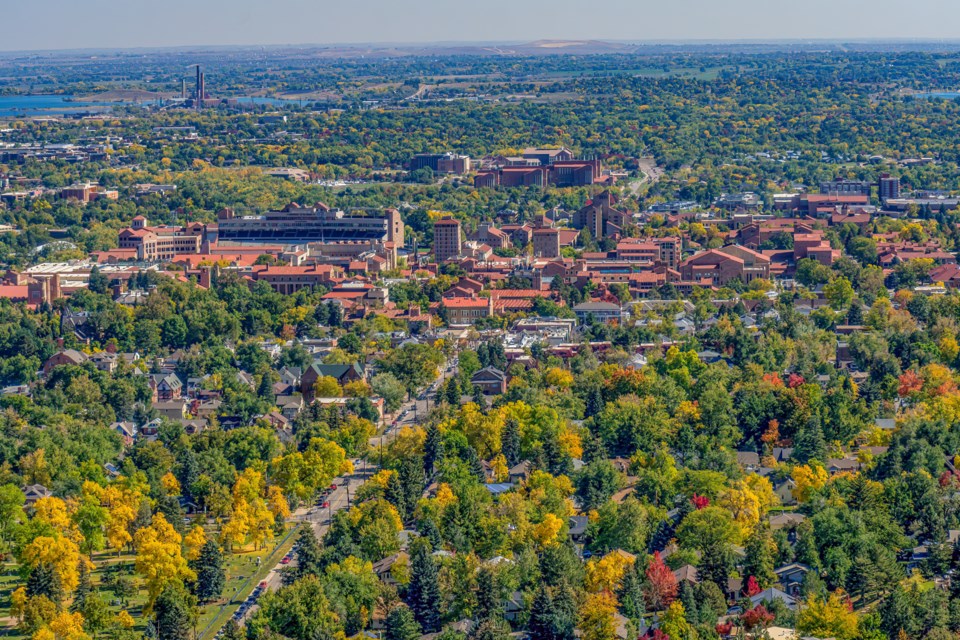This story was originally published on March 17. It was updated on March 21 at 4:38 p.m. to incorporate data and insight provided by the City of Boulder.
Boulder’s creative community is mobilizing to advocate for what they see as a full restoration of funding intended to support local artists and cultural organizations. Following the passage of Ballot Issue 2A in 2023 — which repurposed an expiring sales tax to generate $3.6 million annually for arts and culture — a group of artists and advocates launched a petition on Feb. 22 to ensure the funds are distributed as they believe voters intended.
The petition has gathered over 1,500 signatures and raised $4,800 via Change.org within its first week. Organizers argue that the city’s budget, which they claim designates only 51% of 2A funds for direct arts support while allocating the remainder to salaries, consultants, reserves, and other administrative costs, undermines the spirit of the agreement.
However, city officials refute these claims. According to Boulder’s Communication & Engagement team, the Office of Arts and Culture’s 2025 budget is approximately $3.4 million. Of that, the city says 24% covers administrative costs, while 53% is allocated to grants, community funding, and programs such as Boulder Arts Week and professional artist support. Additionally, 14% is dedicated to one-time expenses such as a required fund reserve and the Boulder Arts Blueprint, which city officials say will largely be reinvested in grants and programs in the future. The remaining 10% is part of a fund balance, also expected to return to grants and programs.
Mark Ragan, managing director of the Boulder Ensemble Theatre Company (BETC), has been one of the most vocal petition supporters, using social media to encourage residents to demand that city officials fully allocate 2A funds to arts programming. “The city basically allocated 41% of that $3.6 million that voters approved to administrative overhead, staffing, budget set-asides, and future reserves,” Ragan said. “That’s what got everybody very upset in the arts community.”
City officials contest this characterization, stating that 2A is not the only source of arts funding in Boulder. They highlight additional funding sources, including a percent-for-art budget from the Capital Improvement Program, rent subsidies for cultural institutions such as BMoCA, The Dairy, and Chautauqua, as well as funding through the Community Culture, Resilience, and Safety tax, which allocated $190,000 to arts nonprofits in the current round of nonprofit grant funding.
Nick Forster, founder of live music venue eTown, echoed concerns from the arts community that the city has shifted expenses previously covered by the general fund to 2A. “Before 2A, the city allocated about $1.8 million to the arts from the general fund,” Forster said. “About half of that went to grants, and the other half covered internal costs. When 2A passed, they deleted that line item and shifted the burden onto these new dedicated sales tax funds. Instead of increasing arts support, they just reallocated existing expenses.”
City officials maintain that funding for the arts has not been reduced, and that the 2025 arts budget represents an increase from previous years. They also note that in recent years, arts funding was supplemented by federal COVID-19 relief funds, including $975,000 from the General Fund, $75,000 from the American Rescue Plan Act (ARPA), and $279,000 for the Arts Administration Rehiring Grant, also funded by ARPA. These federal funds are no longer available, and the city states that its current grant budget has expanded to cover these previous costs.
Petition organizers continue to urge residents to contact city council members and attend upcoming meetings to advocate for what they see as full restoration of 2A funds to arts grants and programming. They argue that strong financial backing for local artists would enhance Boulder’s reputation as a cultural hub while sustaining existing institutions. The city, meanwhile, points to the Boulder Arts Blueprint, a long-term planning initiative aimed at ensuring community engagement in determining future arts funding priorities.
Boulder’s arts scene is a cornerstone of its identity, boasting the third-highest concentration of professional artists per capita in the U.S. However, arts funding remains a challenge, even as Boulder is considered a potential new home for the Sundance Film Festival, in 2027. Advocates argue that strong financial backing for local artists would enhance Boulder’s reputation as a cultural hub while sustaining existing institutions.
Residents interested in participating in the Boulder Arts Blueprint process can submit feedback through a questionnaire that closes Monday, with additional engagement opportunities to be announced through the city’s social media and newsletter.



